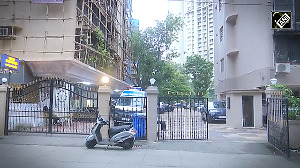India has the most bureaucratic red tape in the South Asian region, according to an International Finance Corporation report.
"It scores worst in time to register a business (89 days), difficulty of firing a worker (90 out of 100), delay in registering property (67 days), and time for closing a business (10 years)," says the IFC's 'Doing Business in South Asia in 2005.'
Further, India ranks second in the region for procedures and time required to enforce a contract, the report, released at the current sessions of the World Bank and IMF, said.
However, on a promising note the report said India has initiated a variety of reforms in 2002-04, while suggesting measures to make them more effective.
It takes three months to open a business in Mumbai. Two of the months are spent in obtaining the Personal Account Number at UTI Investors Services Limited (outsourced by Income-Tax Department) and the Tax Deduction Account Number of the Income Tax Department, it said.
As a remedial measure it suggested that clearing the current backlog, and permitting the business to get underway while waiting to formalise the tax number, would reduce the burden on entrepreneurs.
India scores the highest in the region (tied with Nepal) on the difficulty of dismissing an employee and in the rigidity of employment, it said suggesting "simple administrative reforms" that can reduce such "obstacles" to employers.
India could follow Lebanon's lead in considering redundancy a fair cause of dismissal or Colombia's in removing mandatory notification and third party approval for each dismissal, the report suggested.
"Businesses must go through 40 steps, costing 435 days and 43.1% of the contract to enforce a contract through the Indian courts. This is the second longest delay in the region (South Asia), beaten only by Sri Lanka (the latter requiring fewer than half the number of procedures, it said.
The report said that although secured debt enforcement was recently improved with the Securitisation Act, other contract enforcement remains inefficient.
India introduced case management over the last year to speed judicial processes, but the greatest delay comes from enforcing the judgment: 72 per cent, or 306 days, and this assumes the debtor does not oppose the seizure.
In rich countries, the average duration from the time the judge hands down a decision to the time the creditor gets his money back is 75 days.
Middle-income countries take 134 days, and even poor countries average around half of India's time: 162 days, the report said while admitting that India has sped this process for state-owned banks by permitting them to enforce collateral out of the courts.
Such a reform can benefit litigants across the board by allowing professionals other than court officials to collect unpaid debt, it suggested.




